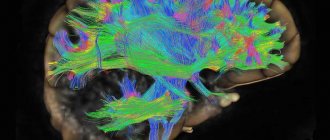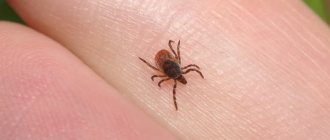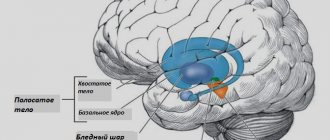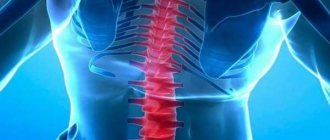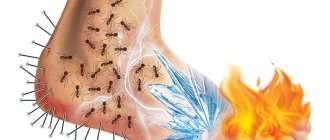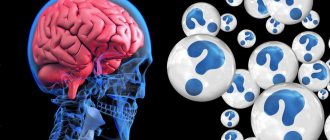Facts about Meniere's disease
- Meniere's syndrome manifests itself as ringing in the ears, severe dizziness and hearing impairment - these striking symptoms are formed due to the gradual damage to the structures of the internal parts of the organ.
- On average, the syndrome occurs in people over 50, the frequency of detection of the disease is 2 people per 1000 population.
- Meniere's syndrome affects older people of both sexes equally.
- As a rule, the disease first affects one ear, and then gradually spreads to the second. Both auditory organs become affected on average 10-15 years after the initial detection of the pathology.
- Genetics have not yet identified a specific gene responsible for the predisposition and development of this syndrome, but according to statistics, 55% of patients have a family history of Meniere's disease.
- The syndrome is characterized by a change in phases of exacerbation (when a person experiences a cycle of attacks) and a phase of remission (when no attacks are observed).
Diagnostics
Meniere's disease is a difficult disease to diagnose. To make a preliminary diagnosis, a study of the patient's symptoms, medical history and otolaryngological examination data is carried out. In addition, if this pathology is suspected, patients may be prescribed additional instrumental research procedures.
During the initial examination, the doctor pays attention to whether the patient has:
- horizontal rotatory nystagmus;
- changes in vestibular reflexes;
- decreased hearing acuity and other previously listed symptoms, if present.
However, in the case of such a complex disease as Meniere’s disease, verification of the diagnosis is mandatory. It is based on:
- Tone threshold audiometry. The procedure helps to identify a progressive increase in tonal hearing thresholds of the neurosensory type.
- Suprathreshold audiometry.
- Vestibulometric tests. With their help, nystagmus is detected, the fast component of which is directed towards the painful side during the next attack of pathology. In the interictal period, it changes direction in the healthy direction. In the remission phase, the specialist records decreased sensory sensitivity on the affected side.
- Dehydration tests. Based on the results of this study, labyrinthine hydrocele is detected. It is advisable to carry out the test only in the first two stages of the development of the disease - only during these periods will their data be positive.
- Electrocochlerography. The procedure helps record the electrical activity of the cochlea and auditory nerve. At the same time, it helps to identify signs of labyrinthine hydrops.
If necessary, the doctor can significantly expand the list of diagnostic procedures - everything directly depends on the situation. The examination scheme may include a CT or MRI of the head followed by a study of hemodynamics.
Important! An important role is played by differential diagnosis. It helps to completely eliminate errors in diagnosis and prescribe adequate treatment.
Meniere's disease must be differentiated from:
- labyrinthine syndrome, which develops against the background of cerebrovascular accident due to vertebrobasilar insufficiency;
- cerebellopontine angle syndrome;
- labyrinthitis;
- benign positional vertigo, which occurs when there is a sudden change in the position of the body and head, and is not accompanied by noise or ringing in the ears;
- neuromas of the vestibulocochlear nerve;
- post-traumatic dizziness;
- vasocompression syndrome;
- psychogenic disorders, etc.
Forms of the syndrome
Experts distinguish several forms of the syndrome, their difference lies in the nature and characteristics of the initial period of the disease:
- Cochlear. This type of disease begins with hearing disorders - obsessive ringing or hearing loss.
- Vestibular. This form of syndrome “starts” with disturbances in the vestibular apparatus - the person becomes very dizzy. In approximately 20% of patients, the pathology originated in this form.
- Classic. This form combines both of the previous options that Meniere's disease takes. The patient’s symptoms manifest themselves in a complex manner: both vestibular and auditory.
Classification of pathology
Based on the clinical symptoms that predominate at the onset of the disease, it is customary to distinguish three forms of the disease. Half of all cases are cochlear form , which is characterized by hearing impairment. In the vestibular form, the function of the vestibular apparatus is disrupted and it develops in 20% of patients. If vestibular and auditory disorders appear together in the initial stage of the disease, then this is the classic form of the disease, which accounts for 30% of all cases of the disease.
This pathology is classified according to severity, which depends on the duration of attacks and the intervals between them.
In mild cases , attacks that occur during exacerbation are short and quite frequent, and the period of remission can last from several months to several years. At this time, a person leads a normal life.
Attacks of moderate severity are frequent and quite long, lasting up to 5 hours, after which a person cannot lead a normal life for several days. Remission may last several months.
Severe severity is accompanied by attacks lasting more than 5 hours. They can occur every day or once a week. Such patients cannot work or lead a normal life.
Why does she appear?
Experts have not yet identified a reliable and accurate reason why Meniere’s disease appears, but during research and observation they identified the most common provocateurs of this pathology:
- Most often, Meniere's syndrome manifests itself after a change in secretion pressure in the inner ear. The accumulated fluid forces the membranes to stretch and creates enormous changes in hearing and coordination. An excessive volume of secretion in the inner ear is mainly provoked by: blockage of the drainage system, due to which the secretion is not able to be removed, or excessive production of secretion, in which a “functional” drainage system does not have time to remove excess fluid from the inner ear.
- A pathological increase in the paths and chambers through which fluid is carried in the structures of the ear also leads to hearing loss and a negative effect on the vestibular apparatus.
- In 25% of patients, specific antibodies were detected in the blood during laboratory tests. These data incline many experts to an autoimmune explanation of the nature of the syndrome, in which, after suffering a virus (herpes simplex and cytomegalovirus), one’s own cells begin to attack internal organs - in particular, the auditory and vestibular systems.
- Injuries to the head and hearing organs are also considered to provoke the development of Meniere's syndrome.
- Experts increasingly consider heredity to be one of the causes of the disease.
Symptoms
A striking symptom of Meniere's disease is severe dizziness. They are often accompanied by nausea and vomiting, and their intensity sometimes gives the patient the impression that the room and surrounding objects are revolving around him. When you turn your head or try to change your body position, the severity of dizziness increases many times over.
Hearing impairment. In the early stages, the patient does not hear low-frequency sounds - this is the main difference between the disease and hearing loss, in which patients, on the contrary, do not hear high tones. With Meniere's disease, a person suffers from a noisy environment and cannot tolerate loudness. Very rarely, hearing impairment results in muffled sounds.
Discomfort inside the ear, which patients note, is a manifestation of increased fluid pressure on the membranes. The feeling of “fullness” gradually intensifies, and this sign marks the beginning of an attack.
The most striking manifestation of hearing loss is a characteristic ringing in the ears that does not go away during attacks; this symptom indicates the beginning of damage to the auditory organs. At the same time, patients also note the peculiarities of the sound of this ringing: it is heard as a muffled whistle, sometimes reminiscent of the chirping of cicadas or the vibration of a ringing bell.
Types
Meniere's disease is usually divided into three main types, each of which has its own distinctive features.
- Classic type .
This type of disease is characterized by simultaneous hearing impairment and malfunction of the vestibular apparatus. The photo shows classic Meniere's disease - Cochlear type . In this case, the hearing fails first, and the vestibular apparatus becomes upset later.
- Vestibular type . Here, on the contrary, the vestibular apparatus is the first to suffer, and only then the hearing.
Each of these types requires an individual approach to treatment.
This information will help you understand how to properly and effectively use onions in your ears for a cold.
How to treat the problem of stuffy ears due to a cold is described in great detail in this article.
But this article will help you understand what reasons there may be for ear congestion at low pressure: https://lechim-gorlo.ru/u/simptomy-u/zakladyvaet-uxo-prichina-lechenie.html
Which ear drops for children from traffic jams are most often used, and what their name is, is described in great detail in this article.
What triggers attacks?
Despite the inevitability of the manifestation of symptoms of the developed disease, patients noted some patterns, namely, the factors that provoked the onset of the attack:
- Stress is the most important provocateur of the onset of attacks. Specific hormones released into the blood during emotional experiences affect the blood vessels, which leads to a sharp change in fluid pressure in the inner ear.
- Smoking also leads to changes in the lumen of blood vessels and can affect changes in pressure in the inner ear.
- Loud, sharp or high-pitched sounds often provoke the development of hearing pathologies, including Meniere's syndrome.
- Vibration from the operation of powerful engines and mechanisms creates vibrations that are destructive to the affected organ, causing attacks.
- Excessive load on the vestibular apparatus, which occurs during long-term balance, controlled asymmetry of movements, as well as motion sickness in various types of transport, can provoke the onset of a severe attack.
- Weather changes associated with pressure changes have a detrimental effect on the condition of patients with Meniere's syndrome.
- ENT infections that progress to otitis media of the middle ear lead to an increase in the production of secretions in the inner ear, and the increased pressure triggers the attack mechanism.
A little more about the treatment of the syndrome
Our vestibular apparatus, located in the inner ear, is controlled by the so-called semicircular canals, which, by the way, are only the size of a grain of rice.
Microliths floating inside them in the endolymph irritate the nerve endings with each change in the position of the human body, doing this in three planes symmetrically in both the right and left ears. And the brain, thanks to such irritations, receives a signal about what position the body has taken.
If something disrupts signal transmission, a person cannot return to a state of equilibrium. One of the reasons for such a failure may be a very severe pathology called Meniere's syndrome.
Experts have been trying to figure out what kind of disease deprives us of the ability to keep our balance for many years, but so far they have not been able to get answers to all the questions.
In modern medicine, a distinction is made between Meniere's disease and Meniere's syndrome. A disease is a self-occurring pathology, and a syndrome is one of the symptoms of a pre-existing disease. This could be, for example, labyrinthitis (inflammation of the labyrinth), arachnoiditis (inflammation of the lining of the brain) or a brain tumor. In the syndrome, pressure in the labyrinth is a secondary phenomenon, and treatment, as a rule, is aimed at correcting the underlying pathology.
According to recent studies, in the modern world manifestations of Meniere's syndrome are becoming more and more common, and the disease is becoming a rare occurrence.
Doctors distinguish two forms of this pathology. In its acute form, Meniere's syndrome, the causes and treatment of which we are considering, bursts into the patient's life suddenly, in the form of an attack in the midst of normal health, sometimes even in a dream.
- The sick person feels it like a blow to the head and falls, frantically trying to grab onto some kind of support.
- There is noise in the ear and severe dizziness begins. As a rule, it forces the patient to close his eyes and take a forced position, always different, but always with his head raised.
- Any attempt to change the position leads to an intensification of the attack.
- The patient breaks out in a cold sweat and is tormented by nausea and vomiting.
- The temperature drops below normal.
- Often all of the above is accompanied by involuntary urination, diarrhea and stomach pain.
The attack, as already mentioned, lasts several hours, rarely – a day. Then the symptoms subside and after a couple of days the patient becomes able to work again. Seizures can recur regularly, but at different time intervals: weekly, monthly, or even once every few years.
The second form of pathology, chronic, is characterized by moderate or rare attacks. It must be said that dizziness in this case is of a more prolonged nature, although it is less pronounced, as, indeed, are all other symptoms of the disease.
Some patients have warning signs of an attack. This may be increased noise in the ear, gait disturbance (the patient finds it difficult to maintain balance when turning his head).
For each new seizure that characterizes Meniere's syndrome, the causes are usually the same: smoking and drinking alcohol, eating in moderation, overwork, any infections, staying in rooms with loud noise, intense fixation of the gaze, or disturbances in bowel function.
The true causes of this disease, as well as why the patient suffers from only one ear, are still not known. What can be said with certainty is that Meniere's syndrome is always accompanied by an excess of endolymph, which is produced by the semicircular canals. Sometimes the channels produce too much of this fluid, and sometimes its outflow is disrupted, but both lead to equally sad results.
By the way, according to statistics, this syndrome is most often observed in women (it is also unclear why). Fortunately, it does not occur very often: only two people out of a thousand are susceptible to this disease.
The diagnosis carried out to confirm the diagnosis of Meniere's syndrome usually consists of examining the patient by an otolaryngologist and always a neurologist. These surveys should be carried out in several directions:
- tone and speech audiometry (helps to clarify hearing acuity and determine the sensitivity of the ear to sound waves of different frequencies - the disease being described has a specific pattern on the audiogram that allows it to be identified in the early stages);
- tympanometry (helps assess the condition of the middle ear);
- acoustic reflexometry;
- X-ray of the cervical spine;
- magnetic resonance and computed tomography, which helps to identify possible tumors that provoke the development of a pathological condition;
- rheovasography (determines the state of blood circulation in the vessels of the arms and legs);
- Doppleroscopy (one of the types of ultrasound) of cerebral vessels.
The diagnosis is made based on the results of these examinations. Treatment is carried out both during attacks and in the period between them.
From all that has been said above, it becomes clear that relief of the patient’s condition can occur if the excess fluid accumulating in the semicircular canals can be somehow removed.
Therefore, most often the symptoms accompanying Meniere's syndrome are alleviated by the administration of diuretics. By the way, a reduction in fluid also leads to a decrease in salt in the body, which can retain it.
There are also drugs that dilate blood vessels in the inner ear. And this also improves the outflow of fluid that interferes with balance.
In severe cases that cannot be treated with medication, they also resort to surgical intervention to help create an outflow channel and get rid of excess fluid in the vestibular apparatus.
In particularly severe cases, when attacks lead to severe disability, the semicircular canals have to be removed. This operation is called labyrinthectomy and, unfortunately, deprives the patient of hearing, but returns him the ability to move normally.
Unfortunately, the described disease cannot be completely cured. When a patient is admitted to a hospital, doctors first of all try to stop the next attack, and after some time Meniere’s syndrome, the causes and treatment of which we describe, turns into a milder form.
But the disease lasts for many years. Therefore, in the period between attacks, the patient has to remember about his illness and maintain his condition with the help of a complex of vitamins, as well as drugs that improve microcirculation and act on choline-reactive systems.
If the patient does not change anything according to his understanding in the medication regimen and takes all medical prescriptions responsibly, then obvious relief of the condition and return to work will be achieved.
It happens that before your eyes, a patient diagnosed with Meniere's syndrome suddenly begins an attack of dizziness. What should a witness do in this case? First of all, don't panic or fuss!
- Help the patient lie more comfortably on the bed and support his head.
- Advise the patient to remain still and lie still until the attack is over.
- Ensure peace and quiet by removing all noise and light stimuli: turn off bright lights, as well as the TV or radio.
- It is best to apply a heating pad with warm water to the patient’s feet (a bottle will do if you don’t have a heating pad), and put mustard plasters on the back of the head. In these cases, you can also use the “Golden Star” balm, which has a warming effect: it is rubbed with gentle movements into the collar area and behind the ears.
- Call an ambulance.
There are several theories linking the occurrence of this disease with the reaction of the inner ear (in the form of an increase in the amount of labyrinthine fluid and an increase in pressure inside the labyrinth) to various damages
- Disturbances of water-salt metabolism
- Allergic diseases
- Endocrine diseases
- Vascular diseases
- Viral diseases
- Syphilis
- Dysfunction of the endolymphatic duct and endolymphatic sac
- Bast valve deformation
- Blockage of the vestibular water supply
- Decreased airiness of the temporal bone.
In recent years, the focus has been on a theory that explains the occurrence of this disease by dysfunction of the nerves innervating the vessels of the inner ear.
In most cases, conservative therapy for Meniere's disease is effective, but in 5-10% of cases, surgical treatment is necessary due to dizziness.
Meniere's disease or syndrome is a disease characterized by damage to the structures of the inner ear, manifested by ringing in the ears, dizziness and transient hearing loss.
Studies have shown that this disease occurs in 1 person in 1000 (0.1%). This indicator approximately coincides with the incidence of multiple sclerosis.
Most of the patients are people over 40 years old. The incidence of development among men and women is the same. Meniere's disease (syndrome) affects approximately 0.2% of the entire world population. Most patients are elderly people over 50-60 years old. Women get sick 1.5 times more often than men.
The disease begins as a unilateral process, subsequently spreading to both ears. According to various studies, the disease becomes bilateral in 17-75% of cases within 5 to 30 years.
Every year, 46,000 new cases are diagnosed in the United States. Although no association with a specific gene has been identified, there is a familial predisposition to the development of the disease. In 55% of cases, Meniere's syndrome was diagnosed in relatives of patients, or the disease was present in their ancestors.
The most common theory about the occurrence of the disease is a change in fluid pressure in the inner ear. The membranes located in the labyrinth gradually stretch as pressure increases, which leads to impaired coordination, hearing and other disorders.
The cause of increased pressure may be:
- Blockage of the drainage system of the lymphatic ducts (as a result of scarring after surgery or as a congenital malformation);
- Excessive fluid production;
- Pathological increase in the volume of pathways conducting fluid in the structures of the inner ear.
Anatomical enlargement of the inner ear is the most common condition diagnosed in children with unexplained sensorineural hearing loss. In addition to decreased hearing impairment, some patients experience coordination disorder, which can cause the development of Meniere's disease.
How is it treated?
This pathology is currently considered an incurable disease. All that doctors can do is to slow down the rate at which Meniere's syndrome develops with the help of medications and physical procedures. Treatment is usually symptomatic until the disease becomes severe.
Before starting specific treatment, doctors are convinced that they are dealing with Meniere’s disease; diagnosing it most often involves waiting and monitoring the patient over a long period of time.
Today, the syndrome can only be determined by increasing symptoms and features of hearing loss - patients do not perceive low tones.
Causes of the disease
To date, the exact causes of Meniere's disease remain unclear. There are a number of hypotheses and assumptions that to some extent explain the probable causes of the development of this disease:
- complications of viral infections, as a result of which autoimmune processes develop (immune system mechanisms directed against the cells and tissues of one’s own body);
- hereditary predisposition (a number of researchers note cases of this disease in previous generations in the family history of patients with Meniere's disease);
- vascular diseases in which the outflow of blood from the tissues of the inner ear is impaired, which leads to the accumulation of excess fluid in its cavity;
- metabolic disorders, in particular water-volitional metabolism;
- traumatic injuries of the inner ear;
- diseases of an endocrine nature in which estrogen deficiency is expressed;
- inflammatory and infectious diseases of the inner ear with interrupted or improper treatment, as a result of which negative changes develop in the tissues of the labyrinth;
- allergy.
The causes, symptoms and treatment of Meniere's disease are quite closely related concepts. Treatment of the disease necessarily takes into account the characteristics of the clinical picture, anamnesis and objective diagnostic results, which allow us to assess the severity of the condition.
Operation
Surgical intervention is indicated for those patients for whom drug therapy has become ineffective. During the operation, hormonal drugs are injected into the middle ear, and the chambers with fluid are decompressed. In severe forms, the surgeon can completely remove the affected functional parts of the auditory system to eliminate the patient's suffering. In this case, the patient loses hearing, but the symptoms of the syndrome go away.
Another technique that helps eliminate the painful symptoms of Meniere's disease is injections of gentamicin directly into the functional parts of the middle ear, which cause the gradual death of cells of the vestibular apparatus. At the same time, the patient retains hearing, and coordination is guaranteed by the work of the same system on another, healthy organ.
Symptoms
Let's look at what symptoms usually accompany Meniere's disease. Hearing impairments, initially rare and unnoticeable, can gradually develop into longer and deeper ones. If the disease is neglected, the person may eventually become completely deaf. Ringing in the ear: causes and treatment.
Tinnitus is the main symptom of Meniere's disease. The noise may alternate with a characteristic ringing.
Dizziness becomes a common occurrence, and often even a person manages to get used to it during the course of his illness.
Sometimes unpleasant symptoms such as nausea or vomiting may occur. They often occur along with dizziness.
A person sweats a lot during an attack. The pressure can either increase or decrease quite noticeably. The skin turns pale, motor functions are also impaired due to disruption of the vestibular apparatus. Headache often accompanies the course of the disease. Shortness of breath and arrhythmia are also signs of Meniere's syndrome.

